Squirrel Proof Garden: 15 Clever & Practical Ideas That Actually Work
Squirrels are cute little jerks. They bounce around your yard, twitch their tails, and look like Disney characters… until they dig up your bulbs, chew through your veggies, and rob your bird feeders like tiny masked bandits. If you’ve ever planted a sunflower patch only to watch it turn into a squirrel buffet, you know the frustration.
That’s why creating a squirrel proof garden isn’t just nice—it’s survival. Over the years, I’ve tried everything: sprays, gadgets, fences, and even yelling at them (spoiler: they don’t care). But I’ve learned that a mix of clever tricks, practical barriers, and a dash of humor is the real winning combo.
So grab your coffee, put on your imaginary gardening cape, and let’s go through 15 creative ideas to build your own squirrel proof garden.
1. Raised Garden Beds with Wire Mesh

If you think squirrels can’t jump onto raised beds, oh my friend… think again. These critters treat raised beds like their personal dining tables. But here’s the trick: line the bottom with hardware cloth (wire mesh) before you fill it with soil.
Pros:
- Keeps squirrels from tunneling up into the bed.
- Adds protection against moles and voles too.
- Lasts for years if you use galvanized mesh.
Cons:
- Extra work during setup.
- Costs a bit more upfront.
Personal take: I once skipped this step because I was lazy. The squirrels thanked me by planting half a bag of stolen peanuts in my spinach bed. Lesson learned.
2. Motion-Activated Sprinklers
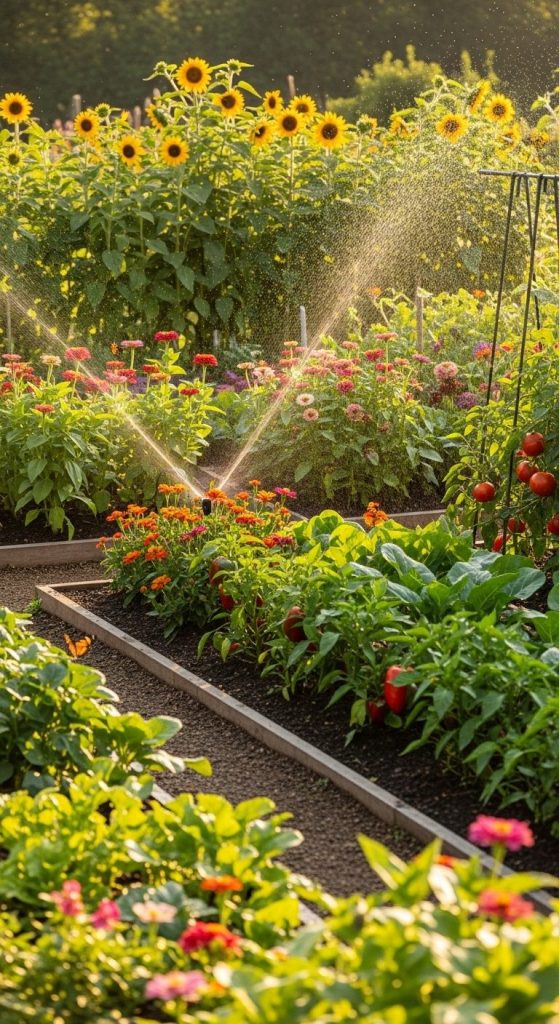
Ever wanted revenge that’s both satisfying and humane? A motion-activated sprinkler is basically a water gun that goes off every time a squirrel scampers by.
Pros:
- Scares off squirrels without harming them.
- Doubles as a bird deterrent.
- Waters your plants at the same time.
Cons:
- Startles you too if you forget it’s on.
- Needs battery or hose hookup.
According to a Statista survey (2023), motion-based deterrents are among the top 3 most effective humane wildlife repellents. IMO, they’re worth every penny just for the comedy factor of watching a squirrel run for its life mid-chew.
3. Plant Squirrel-Repellent Flowers
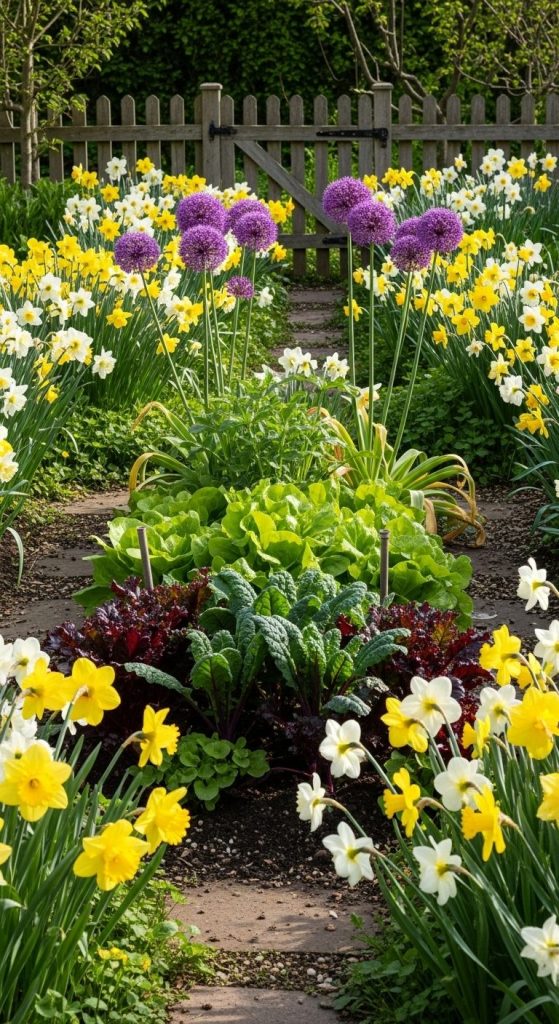
Squirrels might not care about your feelings, but they sure care about smells. Daffodils, hyacinths, and alliums are like garlic to vampires.
Pros:
- Adds beauty to your garden.
- Low-maintenance plants.
- Doubles as pest deterrent (deer hate them too).
Cons:
- Won’t protect everything—squirrels just avoid that patch.
Pro tip: Mix these flowers into your vegetable beds. I once bordered my lettuce patch with daffodils, and the squirrels treated it like a “do not enter” sign.
4. Bird Feeders with Squirrel Baffles
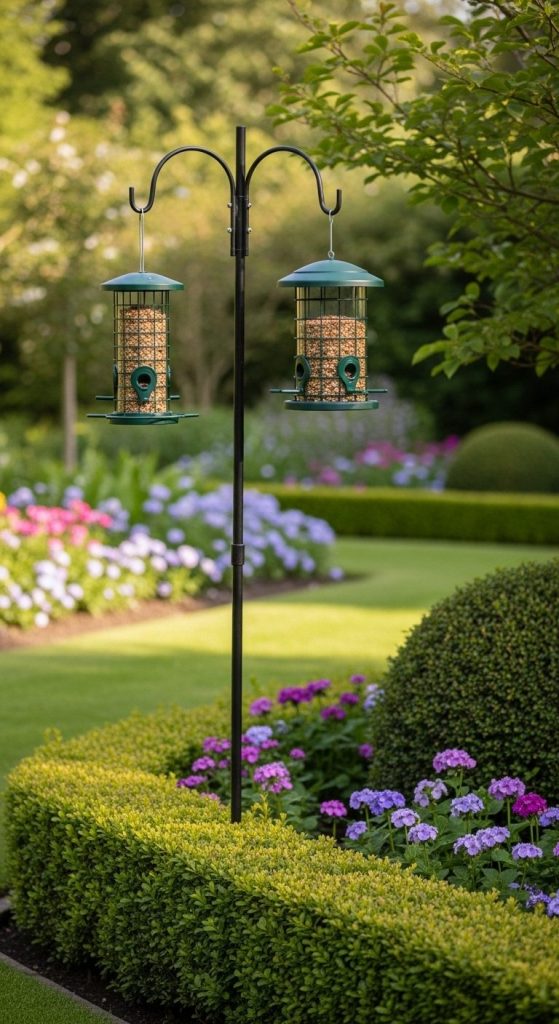
Here’s the thing: squirrels believe bird feeders are made for them. If you’ve tried hanging one without protection, you already know the heartbreak. Enter the squirrel baffle—a cone-shaped barrier that makes the feeder impossible to climb.
Pros:
- Simple and effective.
- Affordable (around $20–30).
- Doesn’t harm squirrels.
Cons:
- You must install it properly—squirrels are Olympic-level gymnasts.
Funny moment: I once watched a squirrel attempt a baffle jump like it was a parkour challenge. He failed. Repeatedly. And yes, I laughed way too hard.
5. Chicken Wire Domes
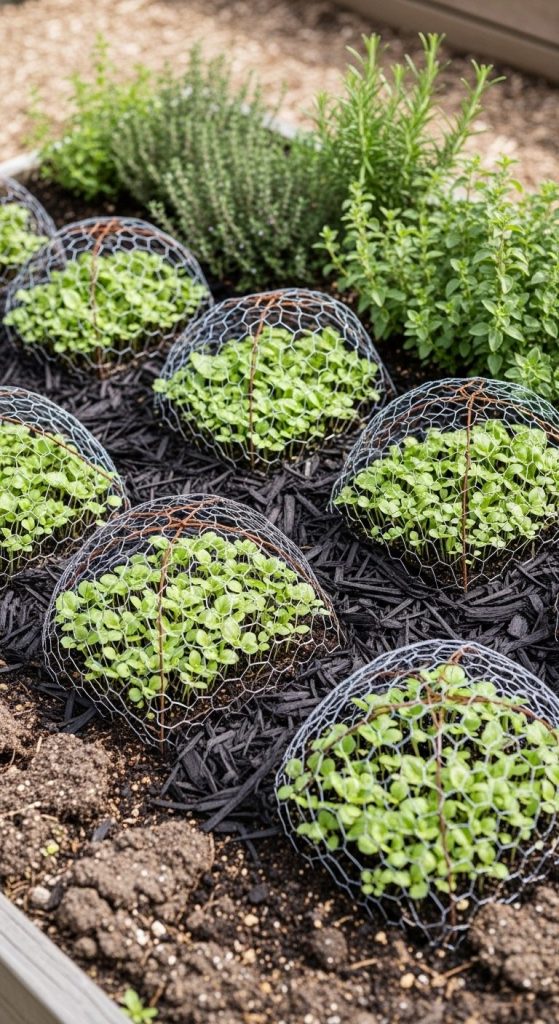
For delicate seedlings, cover them with chicken wire domes until they’re strong enough to survive without protection.
Pros:
- Cheap and easy to DIY.
- Reusable each season.
- Protects against rabbits too.
Cons:
- Doesn’t look super chic.
- Needs regular repositioning.
If you’re worried about aesthetics, paint the wire green so it blends in. Trust me, no one’s judging your “chicken wire chic” if it means your kale survives.
6. Ultrasonic Repellers
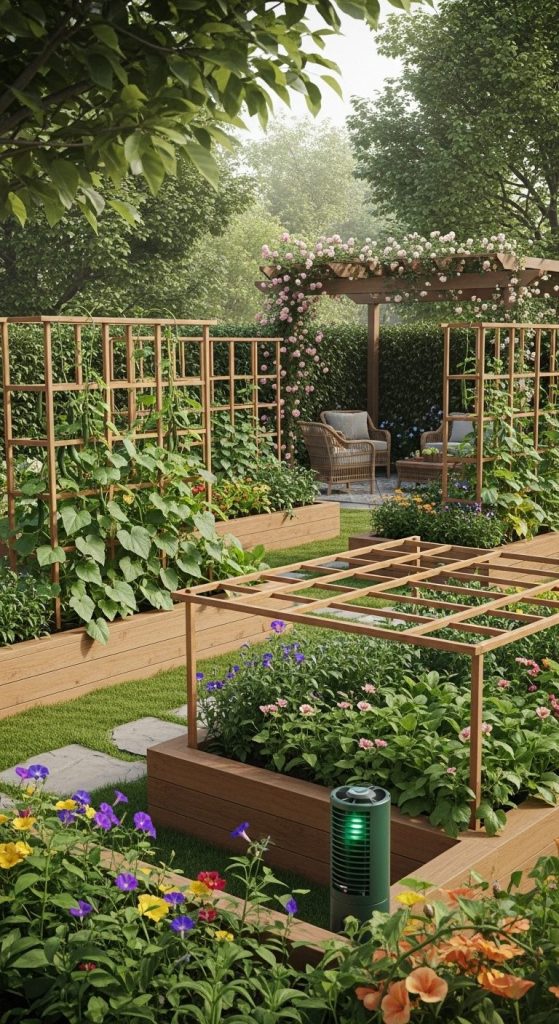
Now, this one’s a bit controversial. Ultrasonic devices emit high-frequency sounds that supposedly drive squirrels nuts.
Pros:
- Hands-off solution.
- Some models cover large areas.
Cons:
- Mixed effectiveness (reviews vary).
- Can bother pets.
I tried one near my tomatoes. The squirrels disappeared, but my neighbor’s dog barked for three days straight. Proceed with caution.
7. Cover Soil with Gravel or Mulch

Squirrels love soft soil for digging. Trick them by covering your beds with sharp gravel, coarse mulch, or even pinecones.
Pros:
- Cheap and easy.
- Improves drainage.
- Also deters cats from digging.
Cons:
- Harder to plant through.
- Doesn’t stop determined squirrels.
A University of Minnesota extension report actually recommends this as one of the simplest deterrents. Sometimes, low-tech is best.
8. Squirrel-Proof Netting
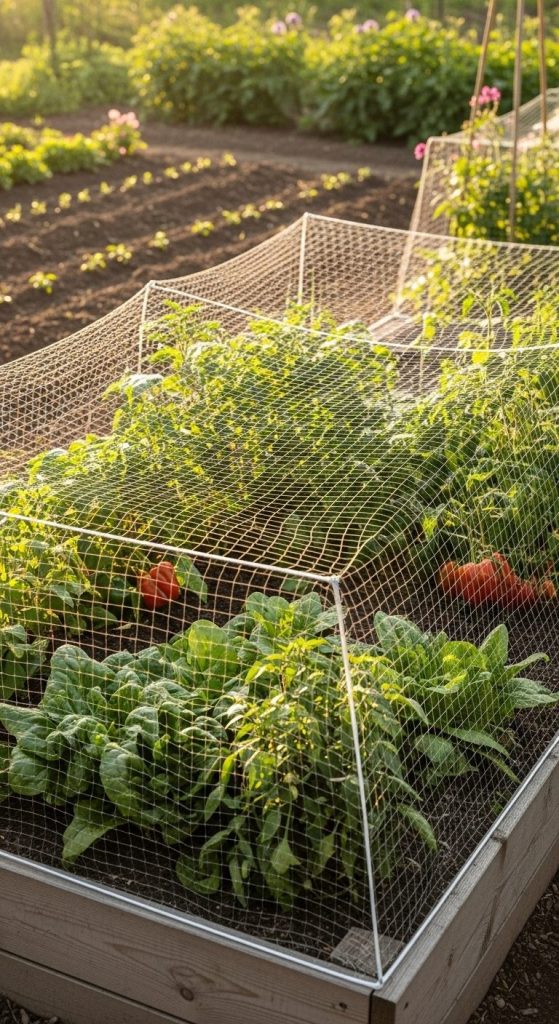
Think of this as putting your garden in a fortress. Plastic or metal netting over raised beds creates a barrier squirrels can’t chew through.
Pros:
- Very effective for fruit and veggies.
- Lets sunlight and rain in.
- Reusable.
Cons:
- Can be a hassle during harvest.
- Needs regular securing.
I once left one side open “just a crack.” You can guess who found it in under 24 hours.
9. Spicy Pepper Spray

No, I’m not telling you to pepper spray a squirrel (don’t do that). I mean homemade chili-garlic sprays you can spritz on plants.
Pros:
- Cheap DIY option.
- Harmless to plants and soil.
- Effective short-term fix.
Cons:
- Wears off after rain.
- Needs reapplication often.
Recipe idea: Boil water, add crushed red peppers and garlic, let cool, strain, and spray. Boom—your garden just became a no-go zone.
10. Decoy Owl or Hawk
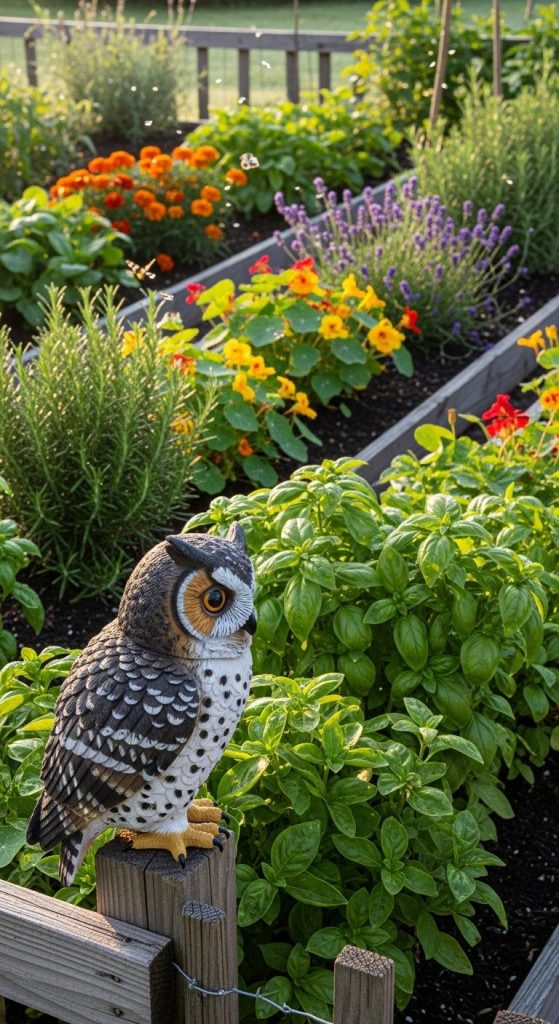
Squirrels are prey animals, and nothing spooks them like a predator decoy. Plastic owls or hawks placed strategically can work wonders.
Pros:
- Low-maintenance.
- Affordable ($15–25).
- Works on birds too.
Cons:
- Squirrels get used to them if they don’t move.
Pro tip: Move the decoy every few days. Otherwise, the squirrels realize your “owl” is basically a garden gnome in disguise.
11. Companion Planting with Mint
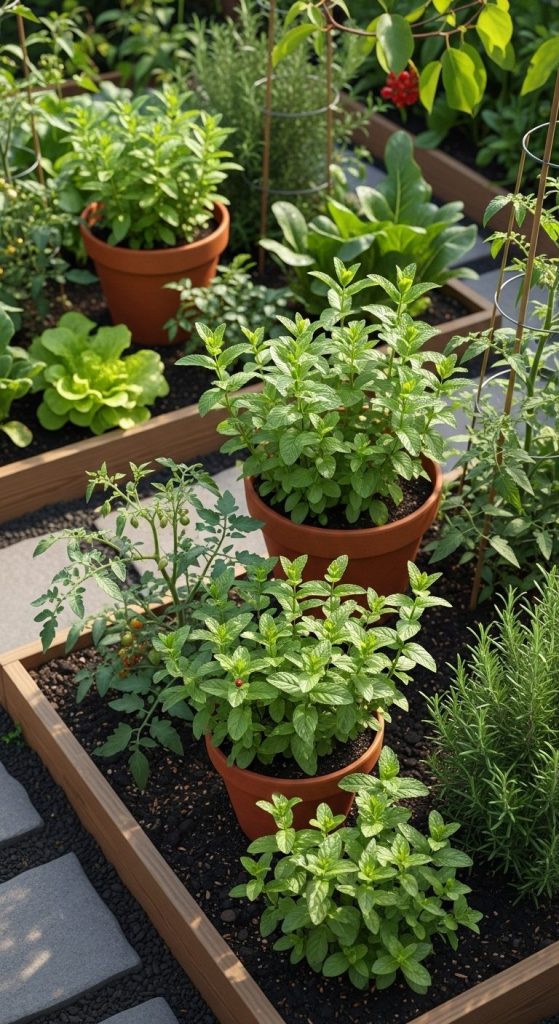
Squirrels hate the smell of peppermint and spearmint. Planting them around veggies is like putting up a natural barrier.
Pros:
- Smells amazing for humans.
- Low-maintenance herb.
- Repels multiple pests.
Cons:
- Mint spreads aggressively (use containers).
I keep mint in pots and move them around like little green security guards. Bonus: instant mojito ingredients on hot days.
12. Electric Fencing (Yes, Really)

Sounds extreme, but low-voltage electric fencing works if squirrels are destroying everything.
Pros:
- Highly effective.
- Works for deer and raccoons too.
Cons:
- Expensive.
- Not ideal for small backyards.
Before you imagine zapping squirrels into oblivion, relax—it’s more of a “mild buzz” that makes them think twice.
13. Provide a Squirrel Feeding Station
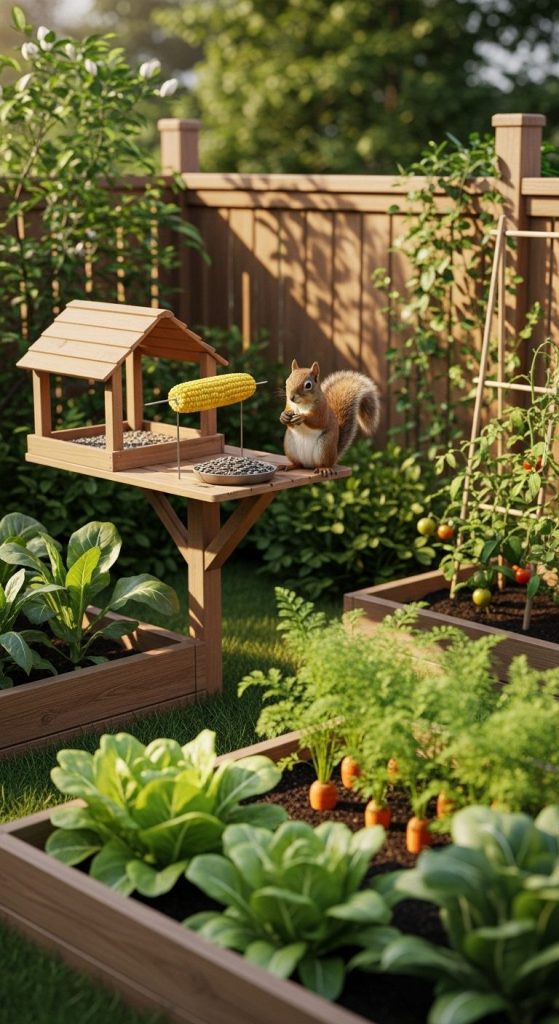
Here’s the reverse-psychology trick: give squirrels their own stash away from your garden. Sunflower seeds or corn on the cob works.
Pros:
- Distracts them from your veggies.
- Fun to watch (they’ll thank you with acrobatics).
Cons:
- You might attract more squirrels.
I did this one summer, and honestly, it worked. My tomatoes thrived while the squirrels hosted a backyard corn festival.
14. Reflective Objects
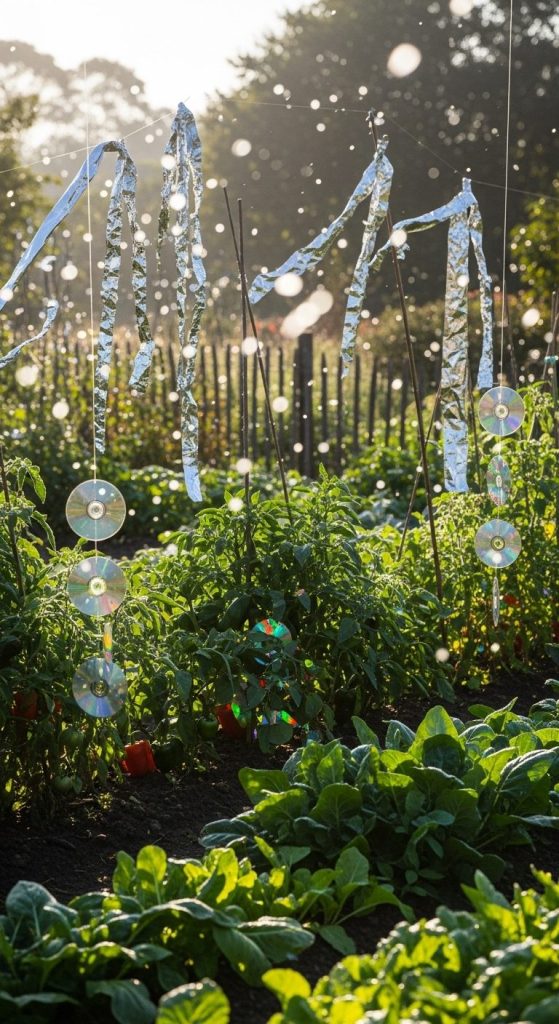
Old-school but effective. Hang CDs, aluminum foil strips, or reflective tape around your garden. The flashing light scares squirrels.
Pros:
- Cheap and easy DIY.
- Works for birds too.
Cons:
- Doesn’t look classy.
- Loses effect if squirrels adapt.
Think of it as a disco party for your veggies. Who knew squirrels hate dancing lights?
15. Garden Cats (The OG Solution)
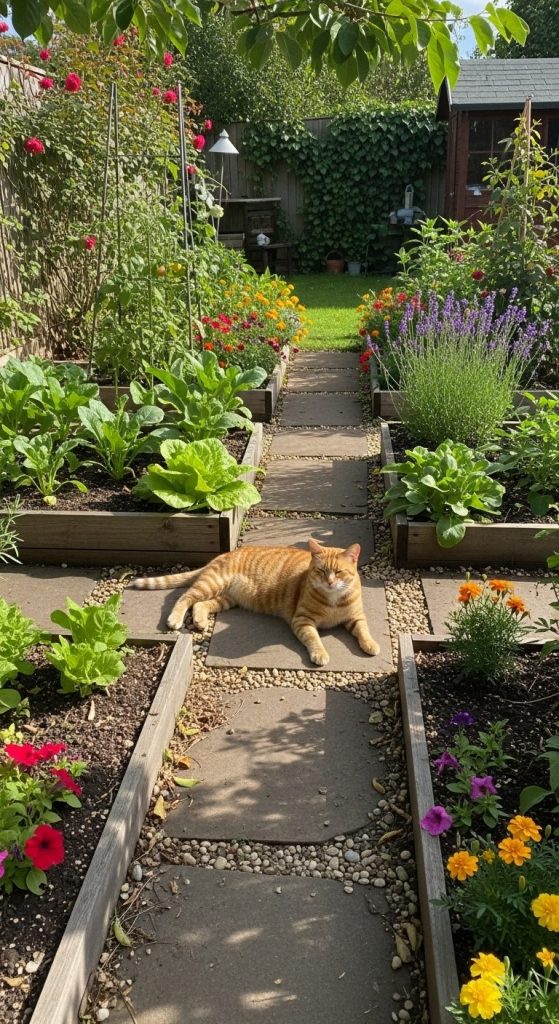
Let’s end with the classic: adopt a garden cat. Squirrels avoid cats like the plague.
Pros:
- Cute, cuddly, and effective.
- Protects against other pests too.
- Built-in garden companion.
Cons:
- Requires, you know, owning a cat.
- Not foolproof—some squirrels are bold.
My tabby once chased a squirrel across the yard, and I swear the squirrel flipped him off from the fence. Still, my garden survived.
Conclusion
So there you have it—15 practical and slightly cheeky ways to build a squirrel proof garden. From spicy sprays to motion-sprinklers, the key is mixing a few methods so squirrels don’t catch on. Will you still catch them giving you side-eye from the fence? Absolutely. But at least your tomatoes will live to ripen in peace.
If you’ve ever lost a season’s worth of plants to squirrels, you know the pain. But with these tricks, your garden stands a fighting chance. And hey, maybe you’ll even start to enjoy the little guys… from a distance. 😉

William Martin is a passionate bowler who spends most of his weekends playing the sport. With years of intense experience under his belt, William decided to share his knowledge by creating BOWLING OCEAN. Join me on this journey to explore the world of bowling and discover the tips and tricks to becoming a pro.






